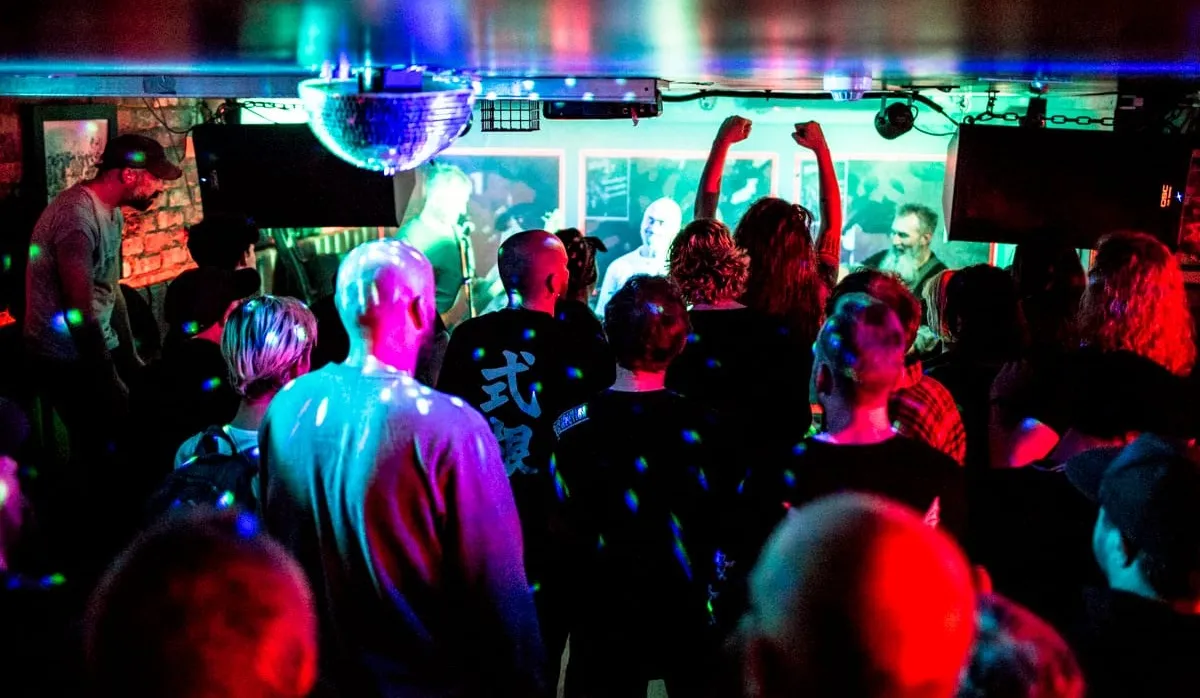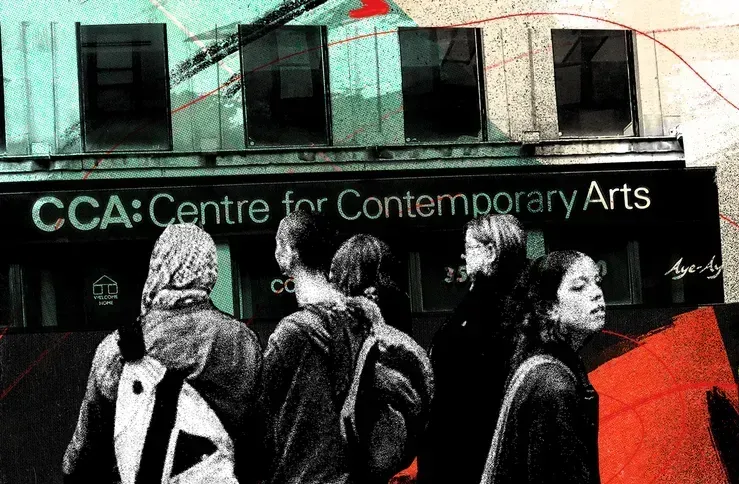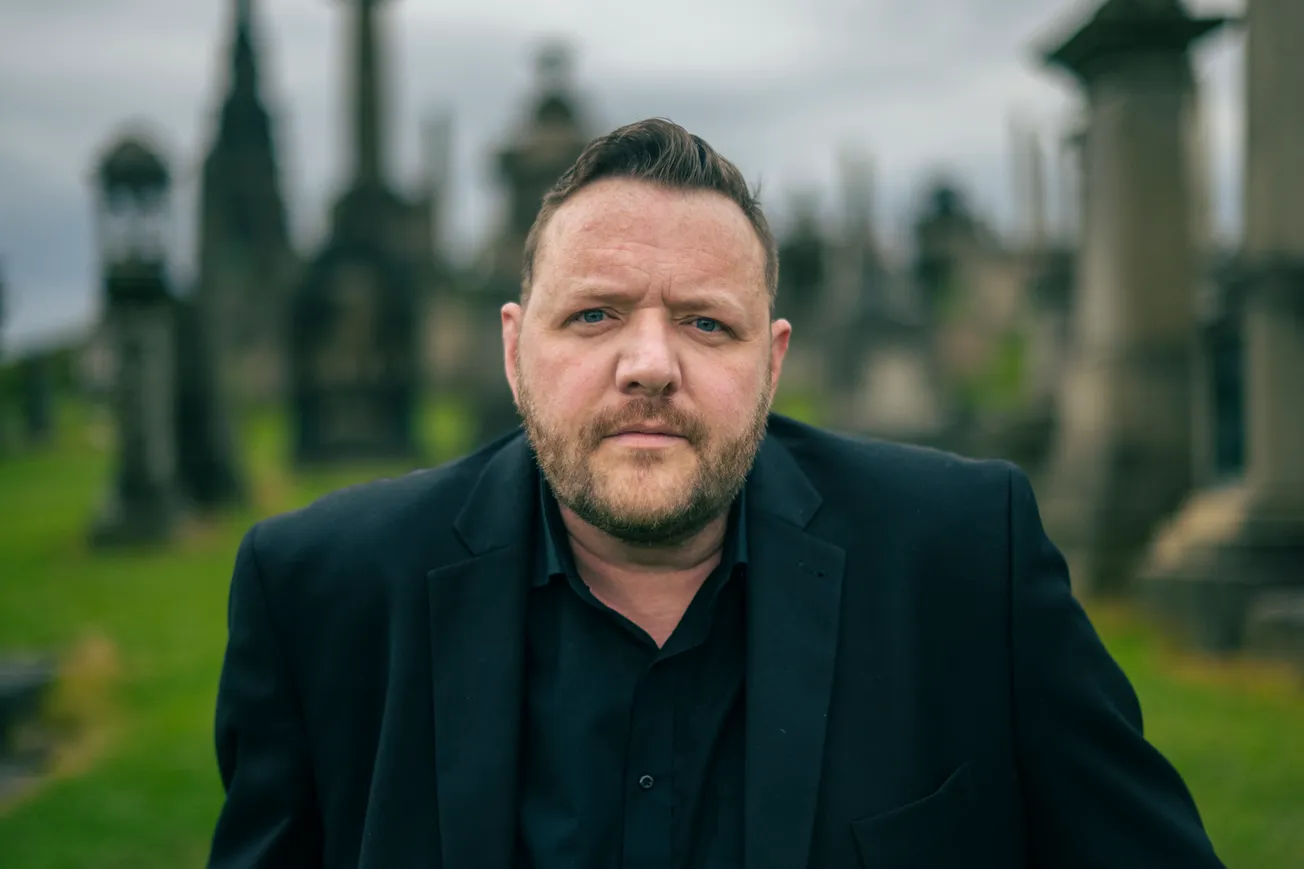Ice hits a bucket hard as it’s poured in by a barman and glasses clink as they’re plucked from a dishwasher. The bar manager switches on a TV next to a red neon sign that says “not for everyone”. This is one of Glasgow’s busiest late-night venues, BLOC+ on Bath Street, but right now, at 10.10am, there are no punters, only staff quietly setting up for another day. I’ve always loved the calm before the storm in such places; they’re extra quiet, as if the prior evening or weekend’s sonic punches have stunned the walls and furniture and they’re still coming to their senses. ‘Dreams’ by Fleetwood Mac is playing softly over the loudspeakers. The atmosphere is nothing like the driving indie rock of Stephen McCafferty, who took to the stage the night before.
I’m here to do a pulse check on Glasgow’s grassroots live music venues. The places that really give a city its lauded musical heritage. Because boy do we have one; world renowned in fact. In 2008, Glasgow became UNESCO’s third-ever officially designated City of Music, joining Sevilla and Bologna in being recognised for musical excellence across the spectrum. This honour took into account everything from the city’s conservatoire and proliferation of musical higher education courses, right the way down to DIY gigs in warehouses behind the India Buildings that spawned the likes of Franz Ferdinand.
Glasgow’s hallowed status was forged in grassroots live music venues like BLOC+, which nurtured talent like Frightened Rabbit and Young Fathers. But in recent years, it’s become apparent such spaces — traditionally clustered in the city centre — are in jeopardy. In the Merchant City, the 13th Note has closed, Broadcast on Sauchiehall Street is boarded up with little known about whether it will return, and right across from it the ABC’s future is being decided by the Scottish Government as I write. The Arches, Blue Arrow, Barfly, all gone. In the last decade, the city’s live music infrastructure has been hollowed out (its clubs are suffering too but we’ll come to that in another piece).
Sure, big hitters like the Barrowlands, SWG3 and the Hydro are doing just fine and Glasgow is still an unmissable stop for major music artists. But what really gives a city a music scene of its own, rather than just being a stage for external artists to drop by every now and then, are the spots like BLOC+. The question is: in an era where every song ever created is on your smartphone, and you can produce GRAMMY-winning albums from your living room, what role do these grassroots live venues play in Glasgow’s musical ecosystem? And how do we save them?
Under pressure
“We made it work against the odds”, says Chris Cusack. Matter-of-fact and passionate, he’s been the venue manager of BLOC+ since 2010. When he came on board, he and the owner agreed that all their bands would get a fee and free food and drinks seven nights a week, regardless of audience size. Fifteen years later, their website quotes hard-to-believe prices: “£3 pints, £3 spirits + dash, £6 steaks.” Fair enough, tickets to their nightly gigs must be where they make their money. Nope, they’re free.
How do they make it work, I wonder. Cusack closes his laptop and looks at me. “Community”, he says.
‘Community’ might be a finite resource though. In the past, Glasgow’s grassroots music venues were akin to weeds; if one died, another sprouted nearby. That is, until recently.
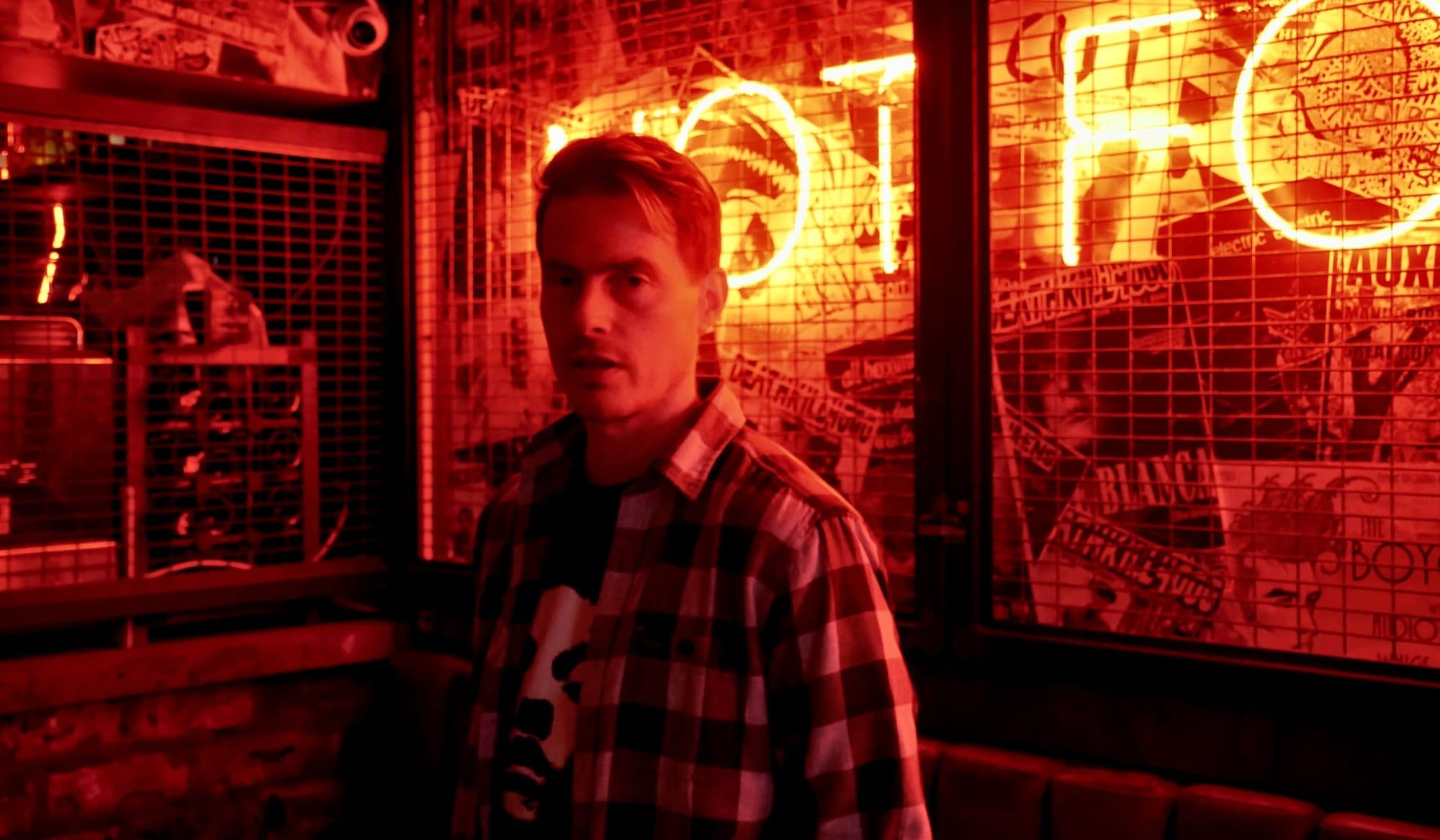
Glasgow’s nightlife is in the “worst state it has been in since 1979”. That’s according to the man behind one of Scotland’s biggest gig promoters, PCL Presents. He also owns Sneaky Pete’s in Edinburgh, and Broadcast. His name is Paul Cardow and he’s one of the city’s most experienced promoters and venue runners. I ask him about Broadcast’s future as I sit down in his whitewashed office in St. George’s Cross. In September last year, the venue closed its doors and is yet to reopen.
Physical infrastructure was to blame for that closure; several floods made the floor collapse and the building unsafe, Cardow explains. There’s an ongoing dispute with the landlord of the premises, the details of which I can’t recount but “we’re taking him to court,” Cardow assures me. Broadcast, he says, will not be returning anytime soon to its spot on Sauchiehall Street. Reports of new owners are false.
Even before the floods, Broadcast had issues, including a 2022 industrial dispute over low pay and working conditions. As far as spare money goes in the industry, Cardow says, “there isn’t any”. Costs of everything from stock to labour have gone up, while the UK government’s national insurance hike for employers is further eroding margins. Glasgow’s main problem, however, Cardow believes, is the “appalling state of late night transport”, deterring punters from live music venues, much of which are clustered in the city centre.
Welcome to The Bell. We're Glasgow's new quality newspaper, delivered via email. Join our free mailing list to get two full editions a week: a Monday briefing, full of things to do and bitesize news, straight from the dear green streets, and a weekend feature, taking you deep inside the bowels of Glasgow.
To get total access to all four of our weekly editions, you can join up as a paying member. We'd love that. But we understand you might want to try before you buy, so click below to sign up totally free and start getting our special brand of local journalism straight to your inbox today.
“There's a cap on the amount of taxis which means when there is a rush, the taxis don't exist,” he explains. “Those late night buses just don't exist. I think there are limited routes on Friday, Saturday but everything else is gone. The cost of even those are really high. I saw the other day, £5.90 for a return bus ticket [into the centre]. That's insane.”
Glasgow City Council are currently reviewing the cap, or ‘overprovision policies’, on taxis and private hire vehicles, like Uber and GlasgowGo cabs, which limits the amount of licences they can hand out to allow drivers of prebooked cars and cabs to operate in the city. There’s a bona fide shortage of taxis however, with licences going spare — many would-be drivers are put off by the qualifications needed. Plus, taxis are expensive, and clubbers eschew them in favour of the cheaper private hire cabs.
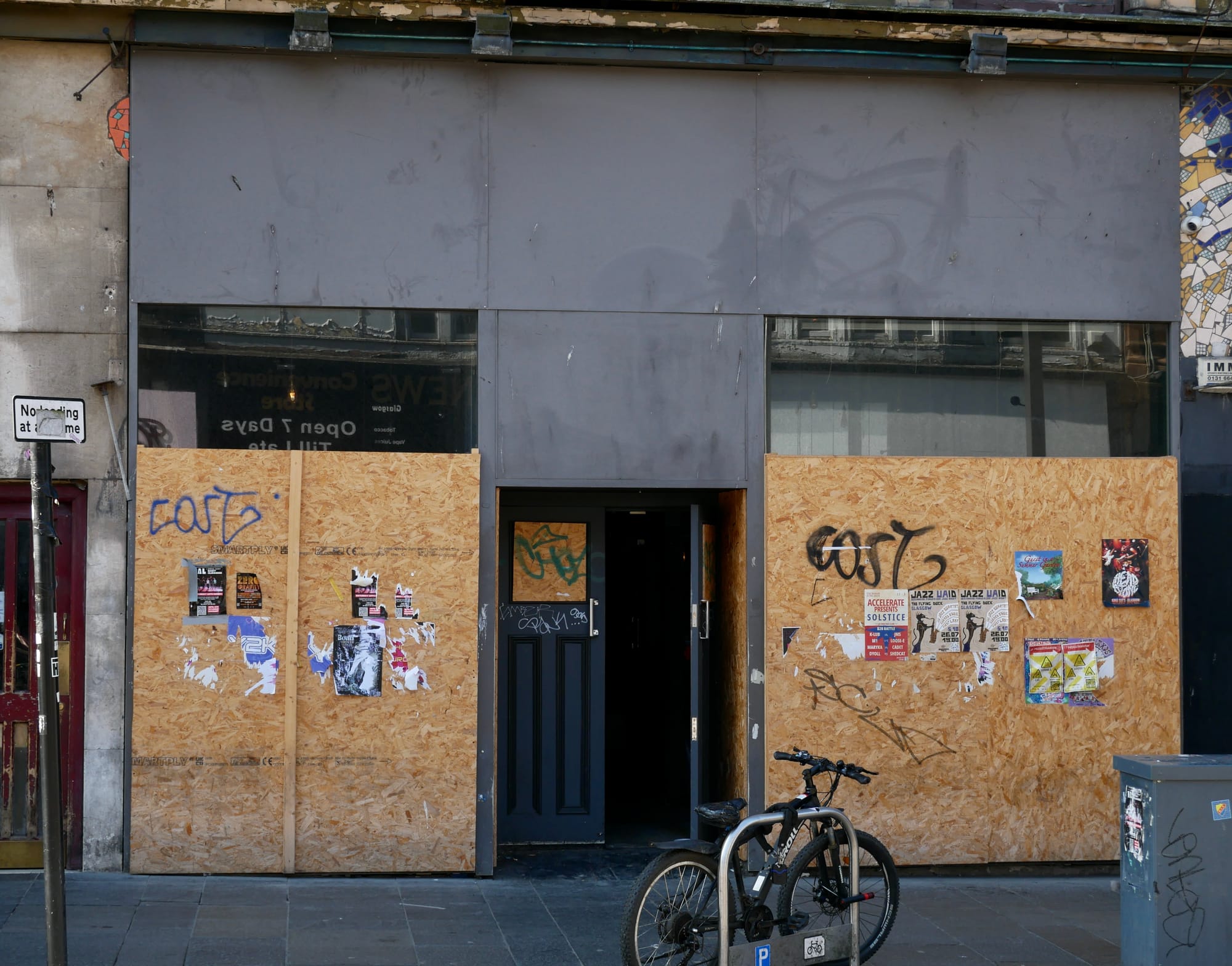
As for night bus services, Glasgow’s are staggeringly poor. First Bus threatened to withdraw all night routes in 2023, but eventually reached an agreement with competitor McGill’s. The result is nine routes departing from the city centre on Fridays and Saturdays, operating between midnight and 3.45am; some are hourly, others more infrequent. Inconsistency and inconvenience means many would-be revellers opt for a cab — or stay home altogether. The council has no ability to compel bus operators to increase provision. A GCC spokesperson told The Bell bus operators are aware of the calls for more nighttime services and that they are “working on” that, but that any changes “will take time”.
Doesn’t Cardow know it; he says 10 years ago city councillors told him they’d push for Glasgow’s subway to open until 3am. “That’s yet to materialise”, he sighs, “and I’m disappointed”. Currently, the subway closes at 11.40pm Monday to Saturday and, famously, at 6.12pm on Sundays. Meanwhile, no Scotrail service departs its origin after midnight.
Fiona Shepherd, music journalist and Glasgow Music City Tours guide, has a slightly different take. While she acknowledges transport has been an issue for live music in the city centre for “years”, for her, the pressures on grassroots venues are a “perfect storm of the pandemic and Brexit”. People’s socialising habits have changed and costs have gone up, simple as. Plus, she, Chris Cusack and Paul Cardow all cite the surprising impact of “big gigs”: Metallica at the Hydro, Kendrick Lamar at Hampden Park and so on.
The increasing expense of stadium tours trickles down; Cusack says he’s noticed that after, say, a big heavy metal Hydro gig such as Metallica, attendance at BLOC+ metal gigs in the following month are considerably lower. “You’ll still get the die-hards”, he assures me, but not the casual music enjoyers. Big gigs “suck up money”, agrees Fiona Shepherd, cash which might have previously gone to the grassroots live music venues. In general, working-class attendees have noticeably thinned, Cusack and Cardow say.
A change of scene
There’s a notable shift in the local authority’s vision for the city centre; the council have made no bones about the fact they want to make it more residential. But will this agenda clash with the nightlife that once populated Glasgow’s heart? For example, the proposal to replace the O2 ABC on Sauchiehall Street with student accommodation, rather than another venue, is a “disgrace”, according to Shepherd, who feels authorities should have pushed for a new live music space to rise from the O2’s ashes. Paul Cardow agrees; they point out that it’s not just a loss of a single venue but also the vital potential custom for surrounding businesses that a few extra thousand people five nights per week would bring.
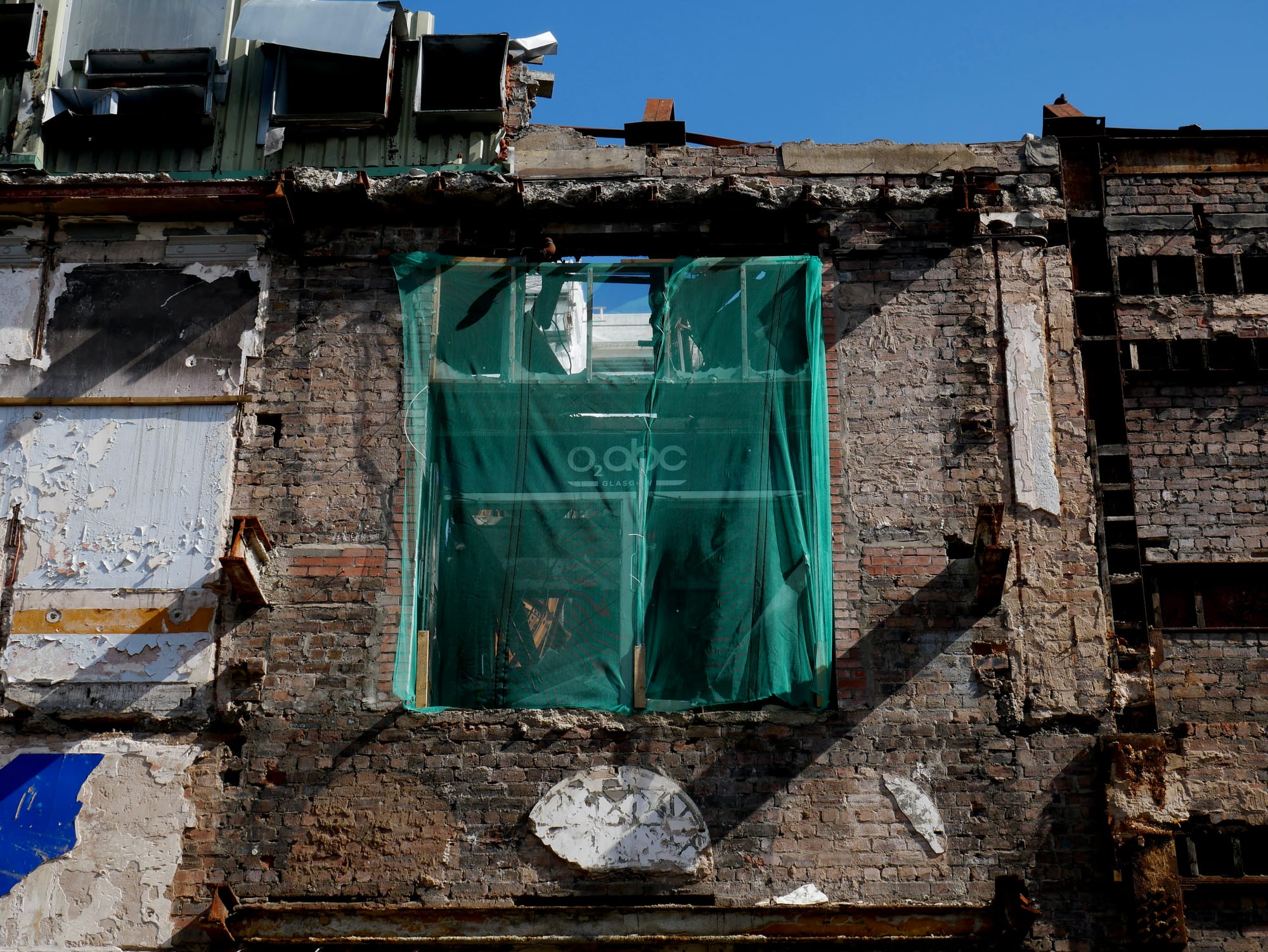
Yet Shepherd is optimistic that Glasgow’s grassroots live venues will pop up anywhere, because of the city’s inherent DIY spirit. “You can’t stop people creating and making music”. I think of the two most recent innovative ‘scenes’ in Glasgow that seem to be having a moment; live experimental electronica and jazz. The former is certainly DIY; its beating heart is regular night Attack Release, hosted by BLOC+. But the latter is backed by the most prestigious institution you can get: the Royal Conservatoire of Scotland.
When one venue closes, “the scene moves on,” Shepherd insists. Paul Cardow isn’t so sure anymore.
The existence of grassroots venues “are taken for granted,” he says, a bit defeatedly. After forty years working in the industry and, at times, closely with the council, Cardow has come to a conclusion. Venues like Broadcast used to depend on the existence of an “enthusiastic guy”, who would cheerfully run the business, even with perilously low margins, out of love. He thinks such figures are in short supply now. (For their part, a Glasgow City Council spokesperson assured me that they “cannot accept” Cardow’s opinion that the council doesn't care about grassroots venues. They point to the nighttime economy sub group as evidence of their continued dialogue with stakeholders in the sector).
Why isn’t more made of Glasgow’s UNESCO music status, I ask Cardow. He smiles wryly. He’s seen no grants or benefits as a result of the honour, he says. There wasn’t a pot of money that came with it; instead the council’s quango, Glasgow Life, is responsible for maintaining the UNESCO legacy.
To try to figure it out I spoke to Katie Duffy, now the head of Arts and Music for Glasgow Life, formerly the communiqué for the Glasgow City of Music team too. And the city must be doing something right, because retaining the title requires annual engagement with UNESCO and the (now) 76 other Cities of Music, as well as report on its own initiatives every four years. Glasgow Life, Duffy tells me, does this through their work on the aforementioned nighttime economy subgroup, where they work with stakeholders to prepare policy recommendations and, she says, grassroots live music venues are well represented; the body also runs spaces like the Fruitmarket and folk behemoth festival Celtic Connections.
Duffy sees a big part of her job as repairing the “vibrant cultural memory”. What does that mean, I ponder? What about vibrant cultural futures? She points to the decade-long project to revitalise the Sauchiehall Street strip as “vital” to the city centre’s fate, but also to show people that Glasgow’s legendary scene isn’t on the way out. I can’t help but think of what Fiona Shepherd said, about scenes moving. If the city centre is no longer a convenient spot for live music, why not go meet people where they are, in the likes of Pollokshields, Springburn and Maryhill? Just look at the examples of The Glad Cafe and Audio Lounge, the latter of which is a music rehearsal space in Maryhill very much preserving that DIY ethos.
Back in BLOC+’s bowels, Chris Cusack points out a colourful poster over my shoulder. It’s yellow with black line drawings of a mohawked punk stabbing himself in the eye and a lady being split in half by a guitar — cartoonish and all in good humour, I should add. The posters are by Scum Ink, a group that puts on hardcore nights on a semi-regular basis in places like BLOC+ and Audio Lounge.
Collectives like Scum are the answer to dwindling audiences, he says; get “dedicated, niche” groups through the door — that “community” he mentioned at the outset of our chat. Scum Ink are back at BLOC+ on 24 July and despite free tickets and cheap pints, Cusack, says wherever there are die-hards there’s a future for live music.

